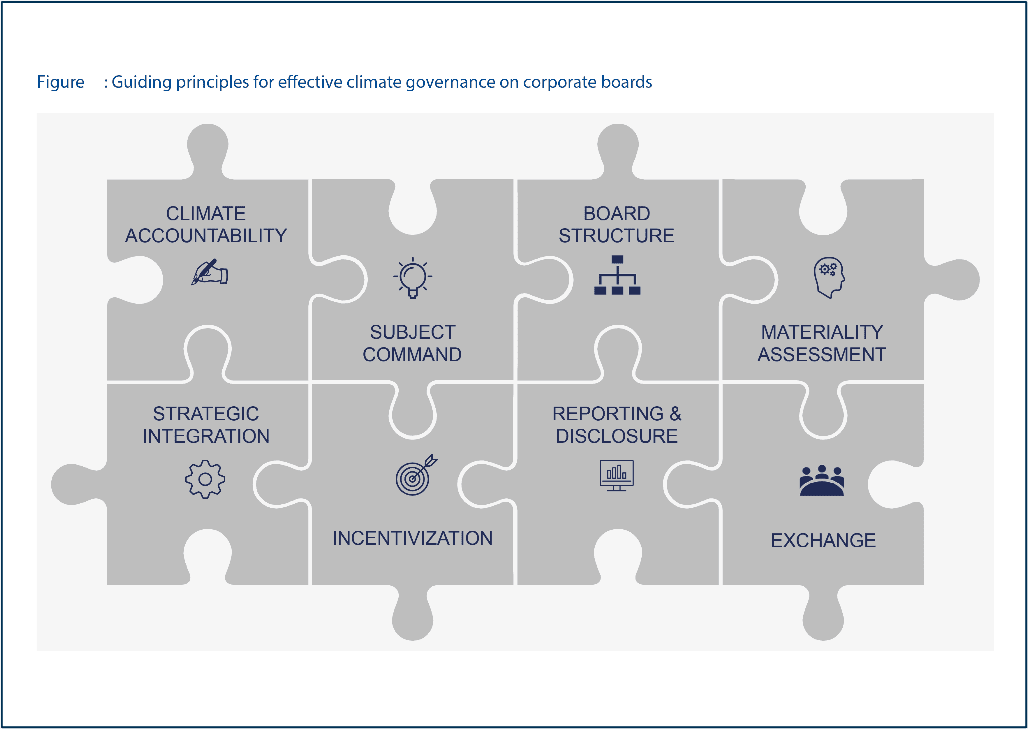Foreword

Climate change poses an existential risk to humanity, the planet and the global economy on a scale never before seen. The 196 parties to the Paris Agreement agreed in 2015 to take action to limit the increase in the global average temperature to well below 2°C above pre-industrial levels and pursue efforts to limit the temperature increase to 1.5°C above pre-industrial levels. Governments have reinforced these commitments at every annual Conference of Parties to the UNFCCC (COP) and Paris Agreement (CMA) since.
The IPCC has concluded that the worst effects of climate change will be limited by keeping global average temperature rise below 1.5°C. To limit global warming to 1.5°C, greenhouse gas emissions must peak before 2025 at the latest and decline 43% by 2030. To meet this goal, economic activity must achieve net-zero greenhouse gas emissions by 2050 or earlier, with clear interim milestones in 2040 and 2030.
We are approaching the midway point of this critical decade and the science is clear that we are not on track. In February 2024, scientists confirmed that we have breached the 1.5°C temperature threshold on average consistently for over a year. We are in unprecedented times, and the impact of surpassing climate tipping points will have disastrous and unparalleled consequences across the world. Government action alone is insufficient and businesses must step up. The new economic and geographical world in which companies are finding themselves, and will continue to find themselves, will require a wholesale shift in how companies are governed: for board directors, it means placing the climate transition at the heart of corporate strategy, ensuring that board decision-making processes properly embed climate considerations, and that boards drive a marked cultural change across their organisations.
 However, despite a growing awareness of the scale and urgency of the climate crisis, far too few directors possess the specific interdisciplinary skills necessary to effect this wholesale change of culture and behaviour. It is for this very reason that the Commonwealth Climate Law Initiative (CCLI) and the Climate Governance Initiative (CGI) came into being. Since 2015, the CCLI has published or commissioned regular reports and legal opinions on the topic of directors' duties and climate change around the world, and has produced a global Directors' Duties Navigator: Climate Risk and Sustainability Disclosures (previously titled 'Primer on Climate Change: Directors' Duties and Disclosure Obligations') every year since 2021. In 2019 the World Economic Forum unveiled the Principles for Effective Climate Governance (the CGI Principles), a comprehensive set of guidance principles that lay out best practice for boards and their directors in respect of the climate. To facilitate their promotion and implementation, local CGI “Chapters” have been set up around the world to serve as centres of expertise and venues for directors to exchange with each other as well as with a wide range of subject matter experts.
However, despite a growing awareness of the scale and urgency of the climate crisis, far too few directors possess the specific interdisciplinary skills necessary to effect this wholesale change of culture and behaviour. It is for this very reason that the Commonwealth Climate Law Initiative (CCLI) and the Climate Governance Initiative (CGI) came into being. Since 2015, the CCLI has published or commissioned regular reports and legal opinions on the topic of directors' duties and climate change around the world, and has produced a global Directors' Duties Navigator: Climate Risk and Sustainability Disclosures (previously titled 'Primer on Climate Change: Directors' Duties and Disclosure Obligations') every year since 2021. In 2019 the World Economic Forum unveiled the Principles for Effective Climate Governance (the CGI Principles), a comprehensive set of guidance principles that lay out best practice for boards and their directors in respect of the climate. To facilitate their promotion and implementation, local CGI “Chapters” have been set up around the world to serve as centres of expertise and venues for directors to exchange with each other as well as with a wide range of subject matter experts.

The first of these eight CGI Principles, entitled ‘Climate accountability on boards’, concerns an issue that has frequently stood in the way of board directors factoring climate concerns into their decisions: how their legal duties and obligations apply in the context of the now-universal recognition of the extreme threat that climate change poses to the global economy and therefore to individual businesses. Too often, boards are concerned that “leaving profitable business on the table”, or acting according to “how we wish the world to be, rather than how it is” will place them in breach of their legal obligations to shareholders, or worse, result in litigation or removal.
This Navigator, now in its fourth edition, tackles precisely this issue, and provides a succinct, easily accessible summary that non-lawyers who serve on boards can readily understand and act on. The Navigator covers 33 countries (plus the EU) and will serve as a valuable resource to the global network of CGI Chapters, and enable directors around the world to act in a fully-informed manner on their legal obligations as they confront the twin climate and nature crisis.
The Climate Governance Initiative currently has 32 active Chapters in Australia, Brazil, Belgium, Canada, Central America and the Caribbean, Chile, Egypt, France, Germany, Greece, Hong Kong, Italy, Ireland, Kazakhstan, Malaysia, Mauritius, Mexico, the Nordic region, the Netherlands, New Zealand, Poland, Romania, Singapore, Slovenia, South Africa, Spain, Switzerland, Turkey, the United Kingdom, Ukraine & Caucasus, the United States and Uzbekistan. Additional Chapters in Europe, Africa and the Middle East are currently in formation.
This Navigator is drafted and coordinated by the CCLI, with the support of many contributing legal experts. It would not be possible without their deep expertise or the support with the World Economic Forum, to which I extend our deepest thanks on behalf of the CGI Governing Board and Secretariat.
Julie Baddeley
Chairman, Climate Governance Initiative
